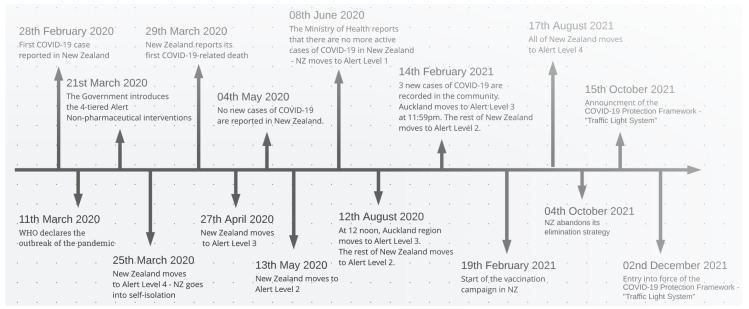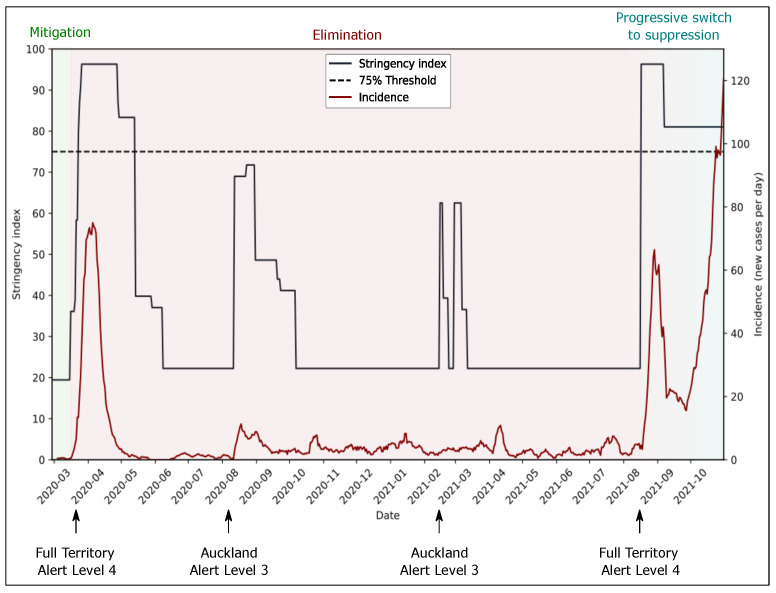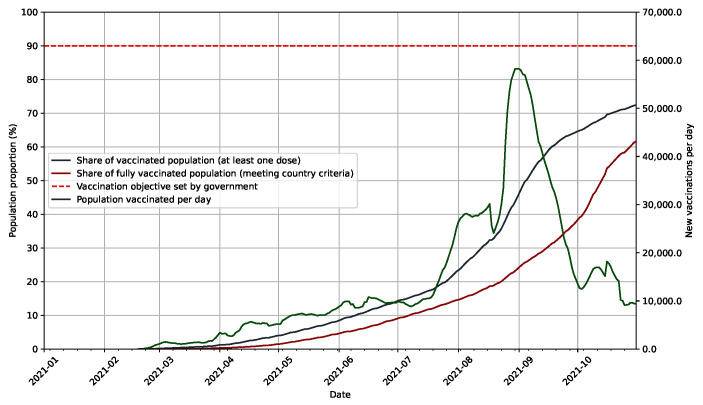The End of the Elimination Strategy: Decisive Factors towards Sustainable Management of COVID-19 in New Zealand.
引用次数: 9
Abstract
New Zealand has long been praised for the effectiveness of its COVID-19 elimination strategy. It resulted in fewer COVID-19-related deaths, better economic recovery, and less stringent policy measures within its borders compared with other OECD countries, which opted for mitigation or suppression. However, since September 2021, the rising number of infections has not been contained anymore by the contact tracing and self-isolation system in place and the government has shifted towards a policy strategy similar to suppression to manage the crisis. In this case study, we analyse the factors that led the government to switch policy and discuss why elimination became unsustainable to manage the COVID-19 epidemic in New Zealand. Results showed that the socioeconomic and political factors, along with the appearance of new variants and a delayed vaccination program, were accountable for the switch in strategy. This switch allows the country to better adapt to the evolving nature of the disease and to address the social and economic repercussions of the first year of measures. Our conclusion does not disregard elimination as an appropriate initial strategy to contain this pandemic in the absence of a vaccine or treatment, but rather suggests that borders cannot remain closed for long periods of time without creating social, economical, and political issues.



消除战略的结束:新西兰实现COVID-19可持续管理的决定性因素。
长期以来,新西兰因其消除COVID-19战略的有效性而受到赞誉。与其他选择缓解或抑制的经合组织国家相比,它减少了与covid -19相关的死亡人数,促进了经济复苏,并且在其境内采取了不那么严格的政策措施。然而,自2021年9月以来,接触者追踪和自我隔离制度已无法遏制不断增加的感染人数,政府转向了类似于镇压的政策战略来应对危机。在本案例研究中,我们分析了导致政府转变政策的因素,并讨论了为什么消除COVID-19在新西兰的流行变得不可持续。结果表明,社会经济和政治因素,以及新变种的出现和延迟的疫苗接种计划,是导致策略转变的原因。这一转变使该国能够更好地适应疾病不断变化的性质,并应对措施第一年的社会和经济影响。我们的结论并非无视消除是在没有疫苗或治疗方法的情况下遏制这一流行病的适当初步战略,而是表明,不可能长期关闭边界而不造成社会、经济和政治问题。
本文章由计算机程序翻译,如有差异,请以英文原文为准。
求助全文
约1分钟内获得全文
求助全文

 求助内容:
求助内容: 应助结果提醒方式:
应助结果提醒方式:


